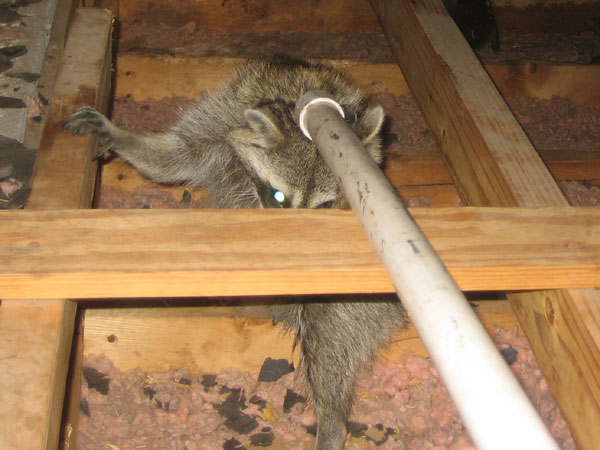Raccoons aren t as likely to invade your home when they re not busy making a family.
Raccoon den in attic.
This mother was no.
Raccoon damage inside your attic.
Typically she stays nesting with her babies.
Raccoon babies are independent by the end of summer when they leave the den and disperse from their family groups.
Raccoons in the attic.
A home s attic is a perfect nesting space.
This almost always involves an adult female and a litter of baby raccoons.
Raccoons are large sized smart and aggressive animals besides they are nocturnal it means all their activities happen at nighttime which makes it hard to detect and repel.
A female raccoon s gestation period lasts about 65 days.
This video demonstrates why you should hire a professional to go face to face with a raccoon in an attic especially during baby season.
Inspect the home and find the entry hole s which are very large and obvious.
Piles of fecal matter which will build spores become absorbed into broken ducts and enter your living space will cause an illness.
The latrines is recommended to be removed.
It s also raccoon mating season.
Raccoons also consider humans as predators and are so aggressive towards them especially when a female newly bred her young cubs and found by the homeowner it can never be humanely removed from the attic until the cubs grow and leave the den.
Raccoons in the attic can cause thousands of dollars in damage from soiled insulation to ripped up ductwork.
The nest of baby raccoons must be found removed and the mother trapped.
It s worth noting that when raccoons get comfortable where they set up home they re not willing to leave for months.
This is a very complex case.
Raccoons typically live in attic dens for short periods.

